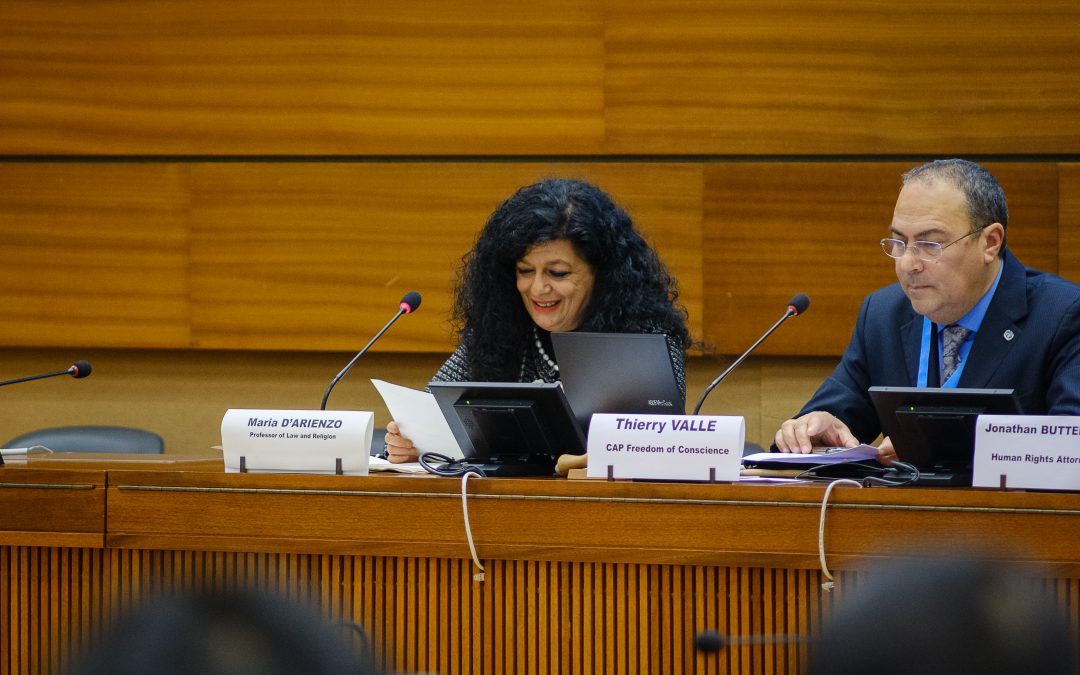I thank the organisers for inviting me to participate in this important meeting on the rights of the Amadyya community. I am very honoured to be here, and I appreciate what is at stake in our meeting for this community and, in general, for the recognition and implementation of the right to religious freedom.
The subject of human rights and religious freedom is one of the most critical issues in contemporary Indonesia, as religious minorities suffer not only from discrimination but also increasingly from physical attacks because of their beliefs, and the cases of the Ahmadiyya community are a clear example.
The Ahmadiyya recognise themselves as part of Islam, but many other groups of Muslims do not recognise them and even consider them as non-Muslims or, worse, as blasphemers and apostates. Others tolerate them, but as an irrelevant minority within the hegemonic Muslim majority, with consequences for human rights and religious freedom.
In Indonesia, the Ahmadiyya arrived in the 1920s and, after an initial period in which they were essentially ignored and did not participate in public religious life and official institutions, the general attitude towards them changed over time. Gradually, episodes of violence against members of the community have increased.
Currently, there are about 400,000 Ahmadiyya Muslims in Indonesia, out of a population of over 260 million.
Since 2005, the situation has collapsed. That year, the Indonesian Ulama Council, the government body that determines the state’s religious policy, declared the Ahmadis to be a “non-Muslim, heretical and deviant” group. Since then, the Ahmadiyya have been officially declared a “non-Muslim” group and are no longer recognised as part of official Islam in Indonesia. Soon after, the government launched a targeted policy of public discrediting and denigrating the community as un-Islamic, as well as a range of discriminatory practices against Ahmadis.
In addition, the most powerful religious groups pressured the government to take direct action to ‘freeze’ the activities of Ahmadis. As a direct result, in 2008, the Minister of Religious Affairs, the Minister of Interior and the Attorney General signed a joint decree banning all religious activities of Ahmadis and the possibility of publicly expressing their beliefs. This joint decree was used as a tool of justification by extremist religious groups, who felt entitled to violate the rights of Ahmadis and their religious freedom, by repeatedly targeting those considered apostates and their places of worship with violence, which were often burnt down.
On 25 February 2017, a prominent Ahmadi mosque in West Java province, “Al-Hidayah”, was closed by the government administration, which no longer allows the community to perform religious acts. This pattern was then repeated in other locations. More recently, in 2021, another important Ahmadi mosque in Sintang province, West Kalimantan, was closed by local authorities under pressure from influential local religious groups.
Ahmadis are thus excluded from public religious life and prevented from claiming their basic rights in their own places of worship. Indeed, depriving a community of a place of worship is a strong indicator of the level of discrimination of its members and the deprivation of religious freedom.
The attitude of institutions leaves no room for doubt. In relation to the violent attacks suffered and reported, the local police are silent and inactive. Some national personalities as well as some elements of civil society apparently condemn the incidents, but these are only occasional statements.
One can only note the discriminatory nature of such attitudes because, even if religious freedom is not without limits, it implies the possibility of publicly expressing one’s beliefs. Freedom of religion has two aspects which, when brought together, lead to the view that freedom of religion applies in the public and private spheres. Religion has a communal aspect. Believers must be able to practise it together and organise themselves for that purpose. The role of governments with regard to religion is limited to providing a framework through restrictions, but which respects certain criteria.
The first criterion is that decisions should not be arbitrary and should be legal. Another is that the objectives must be specified as legitimate and proportionate. In the case of the Ahmahyya community, as a religious minority, restrictions cannot have a discriminatory character. On the contrary, as a minority it should be given special protection. This protection is guaranteed as we have said by international instruments. These affirm the equal enjoyment of the rights guaranteed. In particular, Article 18 of the Universal Declaration of Human Rights states that “Everyone has the right to freedom of thought and religion. This right includes freedom to change his religion or belief and freedom to manifest his religion or belief”. This article was inspired by Article 18 of the 1966 International Covenant on Civil and Political Rights and the 1981 United Nations Declaration on the Elimination of All Forms of Tolerance and of Discrimination Based on Religion and Belief. It is by reference to these texts that a religious community can make known its legitimate claim to freedom to manifest its religion and beliefs, a freedom which it knows can be restricted if necessary to protect public safety, order, health, or morals and fundamental rights. Even if these texts are not accompanied by enforcement procedures, they are references, aids or supports for the disappearance and promotion of tolerance and non-discrimination.



